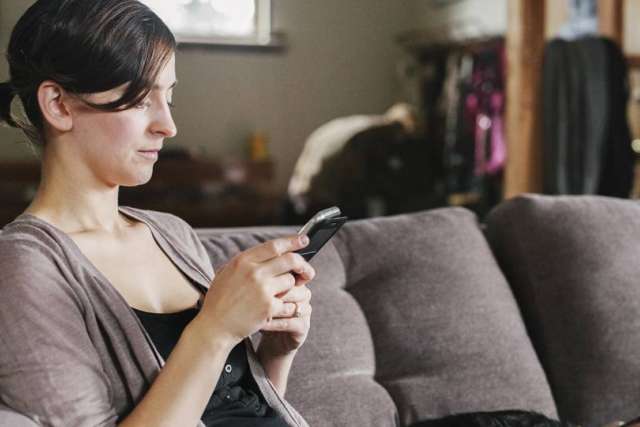The COVID-19 pandemic has forced millions of Americans to hunker down in their homes for months. Understanding the human toll of social isolation has emerged as an important concern among UCLA Health experts, and they now have a project underway to address some of the consequences of the lockdown of 2020.
A text messaging program aimed at supporting people who are socially isolated has been developed under the guidance of the UCLA Women’s Cardiovascular Center. The program – dubbed the Early Cardiovascular Health Outreach SMS (ECHOS) – supplies tips, information and resources to help alleviate stress and loneliness and, ideally, to curb some health risks associated with social isolation.
According to a June 3 study published in JAMA Network Open, 13.8% of U.S. adults surveyed in April reported they always or often felt lonely – an increase from surveys conducted in previous years.
“The COVID-19 pandemic, with its social distancing mandates and self-quarantines, has increased loneliness in our society,” says Kimberly Uehisa, a research coordinator in the UCLA Division of Cardiac Surgery and one of the texting project’s two managers. “People don’t feel connected. Loneliness and social isolation are known risk factors for cardiovascular disease.”
While diet, exercise and smoking are all prominent risk factors for heart disease, less attention is paid to the impact of stress and emotions on heart health, experts says. But previous studies hint at a strong link between the two.
A recent study from German researchers found people who are socially isolated have a 40% increased risk of having a cardiovascular event, such as a heart attack or stroke. Another recent study found social isolation activates similar neural responses in the brain as food cravings, says Timothy Samuelson, a project co-manager who also works as an emergency medical technician and medical scribe.
“We need social contact as much as we need to eat,” he says. “The whole idea of this program is to see what text messages are capable of, if it’s feasible and if people really adhere to the messages.”
Program participants receive a text message every day for 31 days. The text messages are approved by a UCLA cardiologist and offer tips such as “Five minutes of meditation can relieve stress” and “Stretch after your Zoom meeting.”
The participants, who receive a $10 Amazon gift card at the end of the program, also complete short surveys that will be used to evaluate the program, Uehisa says. Previous pilot studies on text messaging in the UCLA cardiology department suggest the technology is an effective way to provide information and support.
In the future, text messaging may be used to help cardiac transplantation and cardiac rehabilitation patients as they recover at home.
“I don’t think anything can beat someone sitting in front of you and the benefits of that social contact,” Samuelson says. “But at this point in the pandemic, we have to look at other options and something that is sustainable for people quarantined for weeks and weeks.”
For more information on the project, visit the COVID-19 Cardiovascular SMS Research website.



